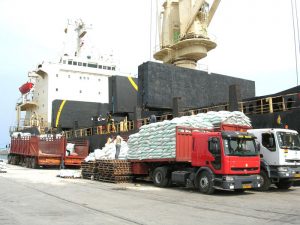The Ghana National Poultry Farmers Association is calling on government to design a special package for poultry farmers engaged in egg production to end the current egg glut challenge caused by the Covid-19 pandemic.
According to the Association, over 500,000 crates of eggs currently lie in various markets going waste due to low patronage.
This has largely been caused by the closure of schools which consume a large chunk of the eggs, as well as their inability to export to neighbouring countries due to border closure.
Speaking to Citi Business News, the Secretary for the Ghana National Egg Campaign, Comfort Kyerewa Acheampong, appealed to government to buy the excess eggs for distribution to schools and the vulnerable in society.
“The reopening of the schools for the final year students is just around the corner. I think less than one third of what we have now is available, because the birds are producing every day. But the bulk are still seated on the farms. What we want the government to do is to help these farmers at this time. The eggs that are already on the farms they can be given to the vulnerable, hospitals, frontline workers, even to the schools because you know eggs contain certain nutrients for brain development. So, even if these students who are going to write their exams are given eggs continuously till they write their exams, we will see the outcome” she said.
The outbreak of the Coronavirus and its consequential effects such as closure of schools, ban on social gatherings and a disruption of the hospitality business, has caused a lot of damage to various sectors of the economy.
Already, poultry farmers in the country have bemoaned the low returns on investment due to the low consumption of eggs by Ghanaians.
They say the situation has led to a slow growth of the poultry and other related businesses as the reduced incomes of farmers are not able to purchase feed regularly; and as a result, feed millers have been producing at a reduced capacity of between 45% and 55%.
Livestock Production in Ghana
Livestock production is an important feature of the country’s agriculture, and accounts for 14% of agricultural GDP.
Much of the poultry sector operations are based on hen table egg production. Also, large quantities of poultry parts are imported to satisfy local consumption.
Ghana imports large quantities of day-old chicks and hatching eggs from the European Union, USA and Brazil.
Already, government through the “Rearing for Food and Jobs” campaign has set an ambitious target to invest in the poultry component of the program as a major step to stop the importation of chicken into the country.
According to the Minister of Food and Agriculture, Dr. Owusu Afriyie Akoto, the poultry component of “Rearing for Food and Jobs” is key to the government of Ghana because Ghana cannot continue to import USD 380 million of poultry meat every year when 20 years ago the country exported chicken to her neighbor.
Source: Citibusinessnews.com






